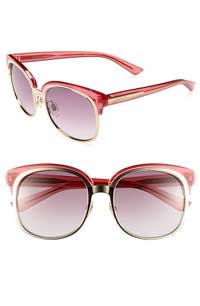Reply To:
Name - Reply Comment
 Rising temperatures are being felt all over the world and the heat is particularly severe in Sri Lanka right now. Greater exposure to heat and sunlight calls for even greater protection from possible harmful consequences. Protecting your eyes from harmful UV rays is essential.
Rising temperatures are being felt all over the world and the heat is particularly severe in Sri Lanka right now. Greater exposure to heat and sunlight calls for even greater protection from possible harmful consequences. Protecting your eyes from harmful UV rays is essential.
UV rays
Ultra violet radiation is invisible to the naked eye. There are three categories: UVA, UVB and UVC. UVA are closer to visible light rays and can pass through the cornea and reach the lens and retina inside the eye. Exposure to UVA can cause cataracts and macular degeneration. UVB and UVC rays are usually blocked by the ozone layer, although the depletion of the ozone layer can allow these rays come through, causing severe damage to the skin and the eyes.
Sunglasses
Sunglasses or shades have become an extremely popular accessory, even a fashion item. However, it is not because sunglasses have dark lenses do they block UV rays. The lenses need to have 100 percent UV protection for sunglasses to protect your eyes. Eye care professionals have instruments that can test how much the lens blocks UV rays. You must always ask for 100 percent UV protective lenses.
The amount of UV protection sunglasses provide is unrelated to the colour and darkness of the lenses. If your sunglasses have dark lenses which do not block UV rays, they can even be more dangerous than not wearing sunglasses. The pupil (the dot at the centre of your eye) controls how much light is allowed into the eye, by dilating or contracting. They usually dilate in the dark to allow more light in. Thus, when you wear darkened lenses, the pupils open more to let in more light. If your sunglass lenses don’t block UV rays, you could be letting more UV light in than when you are not wearing them.
Polarized lenses
Polarized lenses reduce the glare and provide considerable visual comfort in the sunlight. Light reflected from surfaces, such as a flat road, is horizontally polarized, which means that the reflected light travels in a more horizontal direction. This causes a disturbing intensity of light that we experience as glare. This disturbs our vision and can be dangerous, especially when driving.
Polarized lenses contain a special filter that blocks this type of intense reflected light, thus reducing glare. Once again your optician should have polarization testers and be able to point out the most effective lenses for you.
The ideal sunglass should have polarized and 100 percent UV protective lenses. And, be trendy, of course!